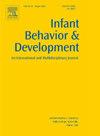Infant neural sensitivity to affective touch is associated with maternal postpartum depression
Abstract
Classic attachment theory emphasizes the sensitivity of the parent to perceive and appropriately respond to the infant’s cues. However, parent-child attachment is a dyadic interaction that is also dependent upon the sensitivity of the child to the early caregiving environment. Individual differences in infant sensitivity to parental cues is likely shaped by both the early caregiving environment as well as the infant’s neurobiology, such as perceptual sensitivity to social stimuli. Here, we investigated associations between maternal postpartum depression and infant neurological sensitivity to affective touch using brain signal entropy – a metric of the brain’s moment-to-moment variability related to signal processing. We recruited two independent samples of infants aged 0–5 months. In Sample 1 (n = 79), we found increased levels of maternal postpartum depression were associated with diminished perceptual sensitivity – i.e. lower entropy – to affective tactile stimulation specifically within the primary somatosensory cortex. In Sample 2 (n = 36), we replicated this finding and showed that this effect was not related to characteristics of the touch administered during the experiment. These results suggest that decreased affective touch early in life – a common consequence of postpartum depression – likely impacts the infant’s perceptual sensitivity to affective touch and ultimately the formation of experience-dependent neural networks that support the successful formation of attachment relationships.

 求助内容:
求助内容: 应助结果提醒方式:
应助结果提醒方式:


